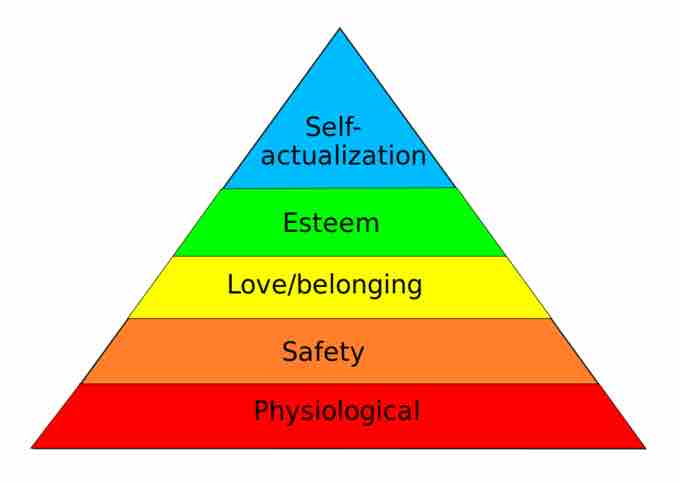Positive psychology is the scientific study of optimal human functioning. The field of psychology as a science has been primarily dedicated to addressing mental illness rather than mental wellness; its research programs and application models have dealt mainly with how people are impaired rather than how they thrive. Rather than detail mental illness, positive psychology aims to study the psychology of people in good mental health.
Historical Roots in Humanistic Psychology
Positive psychology has roots in the humanistic psychology of the 20th century, which focused heavily on happiness and fulfillment. Humanistic psychology emerged in the 1950s in response to the limitations of Sigmund Freud's psychoanalytic theory and B. F. Skinner's behaviorism. Beyond simply the brain and nervous system, humanistic psychology also takes individual subjective experience into account, and as such it seeks to understand human beings and their behavior through qualitative research. In fact, many humanist psychologists completely reject a scientific approach, arguing that turning human experience into measurements and numbers strips it of all meaning and relevance to lived existence.
One of the founding theorists behind this school of thought was Carl Rogers, whose focus was to ensure that developmental processes led to healthier, if not more creative, personality functioning. The concept of client-centered therapy and the term "actualizing tendency" were both created by Rogers and influenced the later work of Abraham Maslow. Both Rogers and Maslow introduced this positive, humanistic psychology in response to what they viewed as the overly pessimistic view of psychoanalysis. Fritz Perls, who helped create and develop Gestalt therapy, also developed theories and practices pertaining to human happiness and flourishing.
Maslow's Hierarchy of Needs and Self-Actualization
The term "positive psychology" originates with Abraham Maslow's 1954 book Motivation and Personality. Maslow formulated a theory that portrays personal needs or motives as a hierarchy, meaning that basic or lower-level needs must be satisfied before higher-level needs become important or motivating (1976, 1987). Maslow’s hierarchy is only loosely developmental; he was more concerned with the sequence in which changes occur, regardless of a person’s age.

Maslow's hierarchy of needs
According to Maslow's hierarchy of needs, self-actualization is the highest state a person can reach after all lower needs are met. Maslow's research on self-actualization was a central component of both humanistic and positive psychology.
The most basic needs in Maslow's hierarchy are physiological needs such as food, sleep, and clothing. Once these needs are met, safety and security needs such as stability and protection become important. After both physiological and safety needs are met, love and belonging needs emerge: people turn their attention to making friends and cultivating positive personal relationships. The next level of needs are esteem needs, which are concerned with gaining recognition and respect from others and self.
Once these four levels of needs are met, Maslow believed people turn toward what he called self-actualization. Also referred to as "being needs," these include such things as a desire for knowledge and understanding, an appreciation of beauty and order, and a desire for fulfillment of one’s potential. People who are motivated by self-actualization have a variety of positive qualities, and Maslow went to some lengths to identify and describe those individuals by analyzing information about them, both through written primary sources (e.g., diaries) and through personal interviews and contacts. Self-actualizing individuals, he argued, value deep personal relationships with others, but also value solitude; they have a sense of humor, but not one used against others; they accept themselves as well as others; they are spontaneous, humble, creative, and ethical. Maslow felt that true self-actualization is rare, but his research led to advancements in humanistic psychology and the later field of positive psychology.
The Focus of Positive Psychology
Positive and humanistic psychology are both interested in positive aspects of psychological health and well-being, focusing on such phenomena as creativity, free will, and positive human potential. These fields of psychology advocate the belief that all people are inherently good, and adopt a holistic approach to human existence. They encourage viewing ourselves as a "whole person" greater than the sum of our parts and encourage self-exploration rather than the study of behavior in other people. They often acknowledge spiritual aspiration as an integral part of the human psyche.
Positive psychology is concerned with three issues: positive emotions, positive individual traits, and positive institutions. Positive emotions are concerned with being content with one's past, being happy in the present, and having hope for the future. Positive individual traits focus on one's strengths and virtues. Finally, positive institutions are based on strengths to better a community of people.